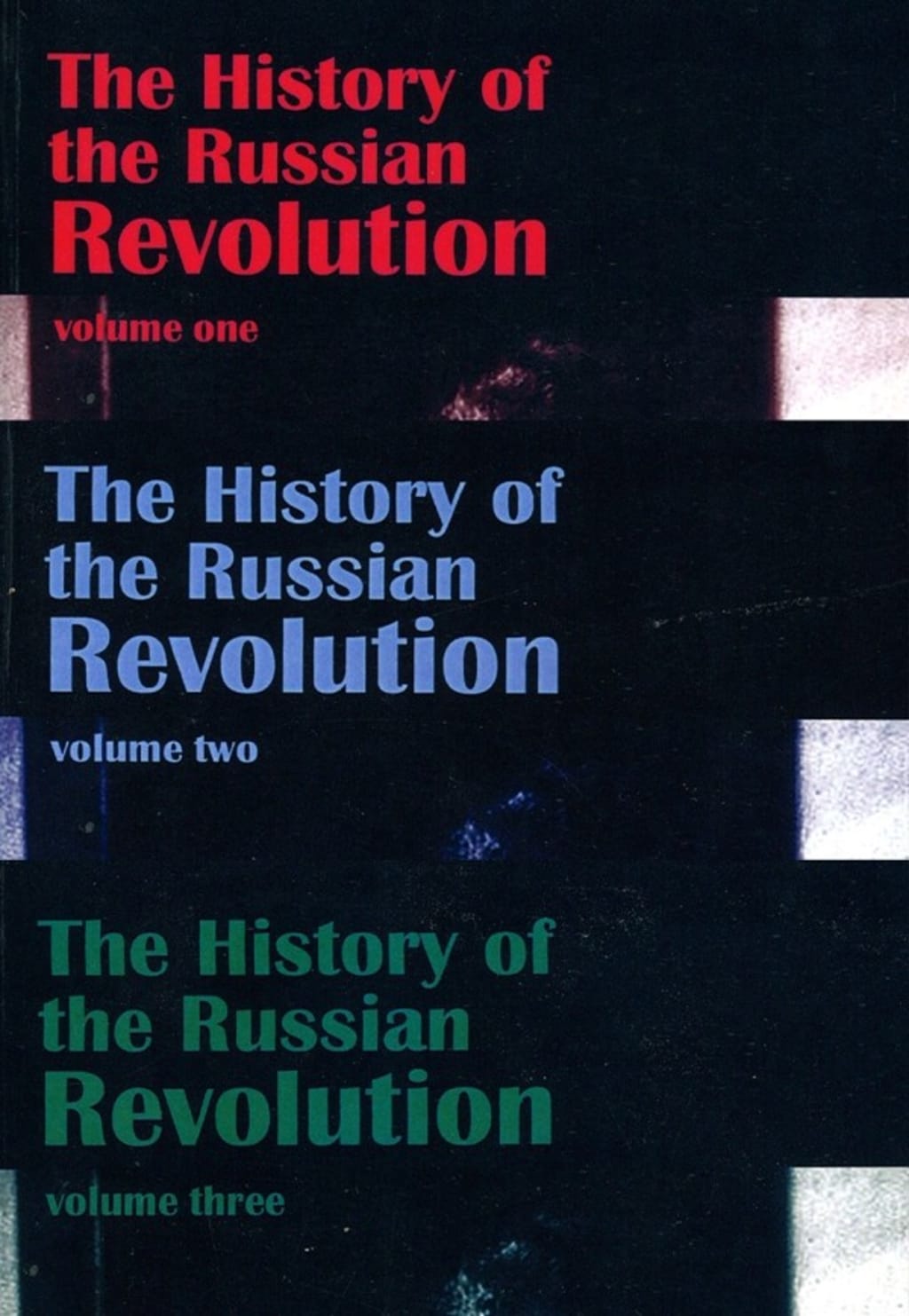Book Review: History of the Russian Revolution
Comrade Trotsky's historical account tries to straddle memoir and textbook... and almost succeeds.

Leon Trotsky's History of the Russian Revolution is, in many ways, one of the most important works of historical writing. Simply put, this book retells the story of 1917's Bolshevik Revolution, a communist uprising that ushered in a new era of human history, the effects of which are still being felt today. These three volumes collect an (almost tediously) in-depth retelling of the event, made all the more significant because it was put down in words by one of the foremost architects of the event itself.
While the unique perspective and the superb intellect of the author make this intimidating tome a pleasant read, a thorough analysis of the content reveals clear failures of objectivity. While the majority of the historical information and style remain above question, one can't help but question Trotsky's memory at times, and his insistence on insulting Joseph Stalin repeatedly makes claims of perfect objectivity suspect.
The major success of this book is its ability to be both a memoir by a communist revolutionary and an account of a major historical event by a political commentator and theorist. Trotsky seamlessly jumps from listing historical facts and figures such as:
"At the June Congress of Soviets the Compromisers had a majority of 600 votes out of the whole number of of 832 delegates... Out of 159 Social Revolutionaries- according to other reports 190- about three-fifths were Lefts, and moreover the Right continued to melt fast during the very sitting of the Congress. Toward the end the total number of delegates, according to several lists, reached 900..."
to near-romantic recollections of the events of the 1917 uprisings from the level of the streets, weaving almost poetic:
"The fighting mood expressed itself in demonstrations, meetings, encounters with the police. The movement began in the Vyborg district with its large industrial establishments; thence it crossed over to the Petersburg side... A mass of women... flocked to the municipal duma... Red banners appeared in different parts of the city, and inscriptions on them showed that the workers wanted bread, but neither autocracy nor war."
The History is delightfully comprehensive. As I'll describe later, it begins with a massive introduction giving an overview of the entire political history of Russia before diving into the action with the fall of the Romanov dynasty, the February Revolution and the development of Kerensky's Provisional Government (volume one), the July counter-revolution and the Kornilov insurrection (volume two), the rise of the Bolshevik Party, the October Revolution, and the first official Congress of Soviets (volume three).
The precise attention to detail and the comprehensive coverage of a near year-long event grand in scope is admirable in general as well as delightful to read.
Yes, while being dense and detail-oriented, History succeeds in keeping the reader (mostly) engaged (come on- all books have their dull spots). In addition, the book manages to be both a textbook and an autobiography, and Trotsky writes with just enough grandeur and intellect to make it convincing.
Unfortunately, this book was written in 1930, at a time when Trotsky had openly fought against Stalin in his rise to power in the USSR and had as a result been exiled. Relations between the two revolutionaries were strained, to say the very least, and this comes through in Trotsky's writing. In fact, at the end of volumes one and two, he seems to go out of his way to include comments to the effect of, "Oh by the way, Stalin did nothing worthwhile in this time hahaha I don't even know where he was isn't he useless? Anyway moving on...."
In the third and final volume, however, Trotsky is far more scathing and precise in his criticisms of Stalin, unfortunately without providing any concrete evidence to back up his claims. Quotes such as the following:
"During the last week before the insurrection Stalin was obviously maneuvering between Lenin, Trotsky, and Sverdlov,"
are not unusual in the conclusion to the final book, and the essays attached to the end of that volume as appendices amount to little more than his defense of his "Permanent Revolution" theory against Stalinist criticism. Especially considering the great lengths Trotsky went to to convince the reader of his perfect objectivity in the prefaces to the first and second volumes, this clearly subjective near-slander is disappointing and sad.
A major redeeming point for this book is the dozens of pages of introductory content in the first volume. Addressing the development of Russia from a collection of nomadic societies into a semi-capitalist-semi-feudal imperialist monarchy as well as the histories of the Romanovs and the Russian socialist movement, Trotsky condenses hundreds of years of major events and changes into a concise introduction that gives even the most uninitiated of readers a thorough grounding and base knowledge from which to understand the work to come.
On the other hand, this mass of dense, dry information can admittedly be intimidating. A less motivated or dedicated reader could certainly be discouraged by how long the book takes to really get going, and one needs to take this into account if they're going to attempt this behemoth of a work.
In conclusion, the tedious introduction and the obnoxiously subjective anecdotes of Trotsky's History of the Russian Revolution try hard to spoil what could be a great masterwork of 20th Century writing. Do they succeed? I don't necessarily think so. While this book is a monster to get through and has distinct low points and aspects, it's full of information on one of the most important events in history that you can't find elsewhere.
Nowhere else will you find such a detailed account of the Russian Revolution, and rarely will you read a book written by such an intelligent and meticulous mind. If you have an interest in political history (or history in general) or are simply looking for an intellectual challenge, this book is certainly for you. In spite of its flaws, I recommend it highly (though it doesn't come cheap (the three volume set runs about $60 before taxes and shipping fees)) and I wish you luck.
Rating: 7.0/10
P.S.: Thanks again for reading this far. Best wishes!
About the Creator
Calvin Hayes
Welcome! I'm a London-based classical guitarist with a love of books, politics, linguistics, nature, and history. I'll be primarily using this platform to review books, but we'll see what the future holds before ruling anything else out.






Comments
There are no comments for this story
Be the first to respond and start the conversation.